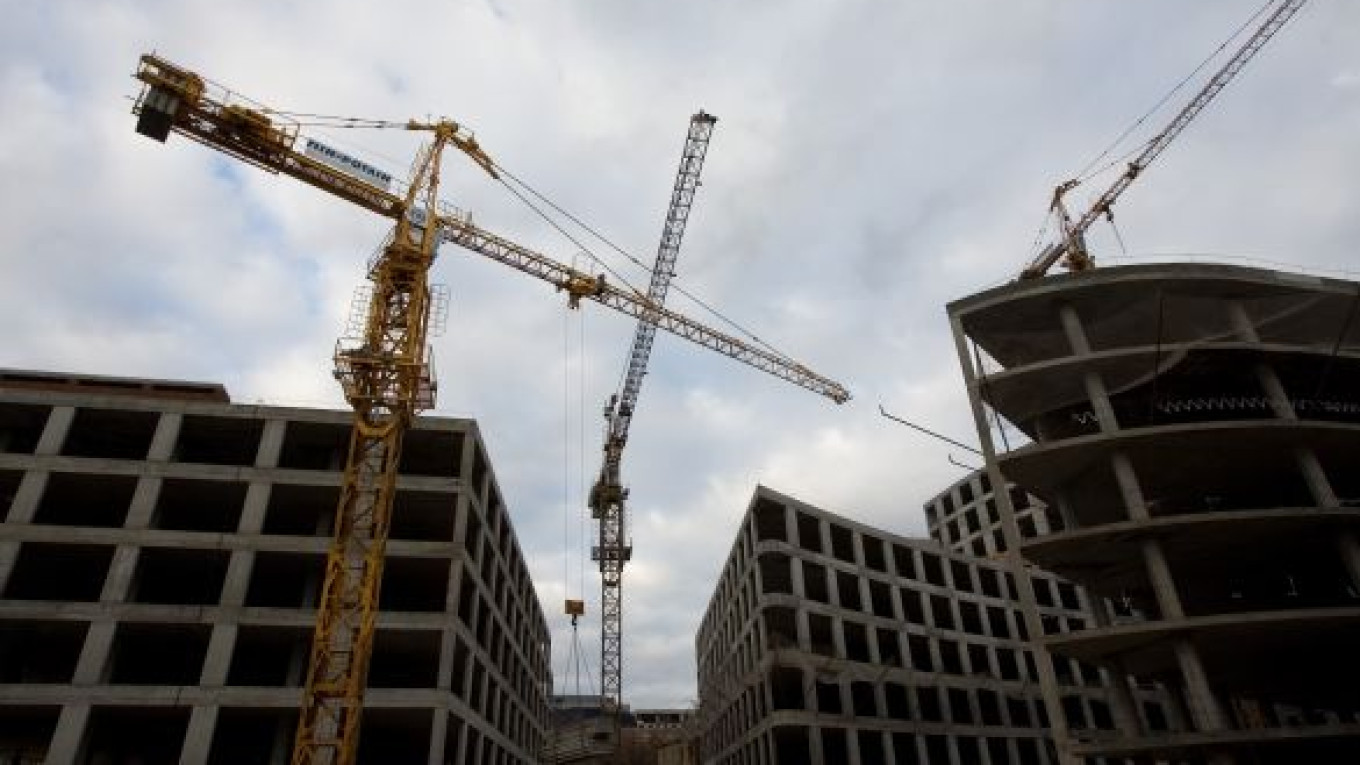One by one, public developers are announcing strategy changes and unfreezing projects that were suspended because of the economic crisis.
LSR Group on Thursday announced the start of its Growth Leader program, a strategy for rapid business expansion as the construction sector recovers. “We felt that the economic downturn had already bottomed out,” said Igor Levit, chief executive of LSR Group. From mid-2008, the company operated under an anti-crisis strategy that entailed a reduction in spending, including cuts in investment and the suspension of projects.
Under the new program, LSR aims to unfreeze five residential construction projects, with a marketable area of 440,000 square meters, on which construction had not yet begun, spokeswoman Yulia Sokolova said.
The developer also intends to acquire land in Moscow, Yekaterinburg and St. Petersburg and is open to considering proposals for the purchase of construction capacity.
Two other public companies — PIK Group and AFI Development — recently announced similar plans. The Russian real estate market has visibly brightened up, said Alexander Khaldei, chief executive of AFI Development. His firm decided to restart construction work on three projects: office buildings on Ozerkovskaya Naberezhnaya (financing is being arranged), on Paveletskaya Naberezhnaya (using its own funding) and the M.I. Kalinin health center in Zheleznovodsk (credit has been provided by Sberbank).
PIK plans to increase its output of residential housing in 2010 to 1 million square meters, compared with 884,000 square meters last year.
“There were delays with the building delivery schedules in 2009, but now they have returned to a working pace, and we are continuing construction,” said Sergei Kanayev, first deputy president of PIK Group. He said the economy-class segment of the Moscow region housing market has already hit bottom and demand is now growing again.
Market participants who were polled said they see a revival and are also changing their plans. Glavstroi will launch three to five new projects in the second half of the year, said spokesman Vitaly Korolyov. “In the near future we will finish restructuring our debt and, possibly, in the second half of the year we will restart some frozen projects,” said Mikhail Dvorkovich, an adviser to the president of Mirax Group. Another developer, MR Group, intends to begin eight new projects, its press service said.
“Our apartment sales are growing, the rental process of Mall of Russia is pressing forward,” said Khaldei, of AFI. Kanayev, of PIK Group, called January — usually an almost dead month as far as sales are concerned — an indicator: PIK sold three-quarters of its December sales volume.
In February, he said, the company sold 30 percent more apartments than in January.
None of the polled market participants would name exact figures, however. “Before, PIK sold 1,000 apartments a month, but during the crisis, no more than 40 apartments. Now average sales have quadrupled, but the prices are stable,” a source close to the company said. The market is stirring and consumers are more active, but it is still too early to talk about growth, said Grigory Poltorak, president of Best-Nedvizhimost.
A Message from The Moscow Times:
Dear readers,
We are facing unprecedented challenges. Russia's Prosecutor General's Office has designated The Moscow Times as an "undesirable" organization, criminalizing our work and putting our staff at risk of prosecution. This follows our earlier unjust labeling as a "foreign agent."
These actions are direct attempts to silence independent journalism in Russia. The authorities claim our work "discredits the decisions of the Russian leadership." We see things differently: we strive to provide accurate, unbiased reporting on Russia.
We, the journalists of The Moscow Times, refuse to be silenced. But to continue our work, we need your help.
Your support, no matter how small, makes a world of difference. If you can, please support us monthly starting from just $2. It's quick to set up, and every contribution makes a significant impact.
By supporting The Moscow Times, you're defending open, independent journalism in the face of repression. Thank you for standing with us.
Remind me later.


